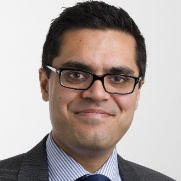
Dr Karen Massey: Make an immediate referral to social services
The child is at risk of sexual exploitation and even if she considers herself to be in a consensual relationship, the Sexual Offences Act 2003 rules that a child under the age of 13 is not capable of giving consent to sexual activity.
Allow the child to talk about her situation, but don’t use leading questions, such as asking whether someone is forcing her to have sex. Leave in-depth investigation to those who have specialised training.
Then make an immediate referral to children’s social care. Discuss with them whether the child needs protection. You may need more details to determine this (for example, the identity of their sexual partner or partners), but this is not essential.
It’s good practice to seek consent to make a safeguarding referral and you should explain to the child what you are doing, and what is likely to happen next, but in this circumstance you can disclose even if she doesn’t want you to. Discuss whether to inform her parents – first with her, then with social care, as there’s a possibility her parents may be involved in any abuse.
If the child is allowed to return home after the referral, ask yourself whether she’ll continue to be sexually active and apply the Fraser guidelines to decide whether to give her contraception. Discuss the decision with a colleague, sexual health or safeguarding team and make detailed notes.
Dr Karen Massey is the named GP for safeguarding children at NHS East Lancashire CCG and a GP in Clitheroe

Dr Paula Briggs: Give contraception, but make a referral first
This situation rings alarm bells and raises the possibility of child sexual exploitation.
Laws protect children under 13, who cannot legally consent to any form of sexual activity. So even if the patient claims she’s having sex with someone her age or below, this is irrelevant.
Try to get the patient’s consent before informing others, although, even if she doesn’t give this, you will still need to share the information. To create an atmosphere where young people feel they can discuss difficult issues, it would be helpful to put posters up bearing the phrase ‘Here to listen, not to tell’ and to use Brook’s ‘My contraception tool’.
Then make a referral to social care following a discussion with the child and ideally the support of a parent or guardian, unless this increases the risk of harm to the child. Social services should then liaise with the police, as sex with a minor is likely to result in registration on the Sex Offenders Register and the possibility of a custodial sentence.
Following referral and discussion with her legal guardian (if appropriate), you could provide a suitable method of contraception to minimise the risk of her getting pregnant or contracting an STI.
Dr Paula Briggs is a consultant in sexual and reproductive health and clinical lead for an integrated community sexual health service in Sefton and West Lancashire

Dr Harpreet Sarna: Make detailed notes and seek professional advice
If a young person has the capacity to provide consent, depending on their maturity and ability to understand what is involved, you don’t need to get parental consent to provide contraception.
The Sexual Offences Act 2003 states that sex with a person under 13 years of age is rape and in 0-18 years: guidance for all doctors, the GMC advises that a doctor ‘should usually share information about sexual activity involving children under 13’ with an appropriate authority.
However, try to get further information from the patient to work out how to proceed, such as: the age of the partner or partners as this may suggest a power imbalance; whether she is being pressurised, threatened or bribed; whether drugs or alcohol are involved; and whether the partner is in a position of trust.
If these details suggest the child is vulnerable, contact the local child protection team, social services and/or the police. This should be done with the patient’s consent (assuming she has sufficient maturity). If this is withheld, you can justify sharing the information anyway.
It may also be appropriate to involve parents or guardians.
This is a highly complex legal and ethical area, and the doctor should make detailed notes and seek advice from the local child protection team and their defence organisation after the consultation.
Dr Harpreet Sarna is medicolegal adviser at the Medical Protection Society
















